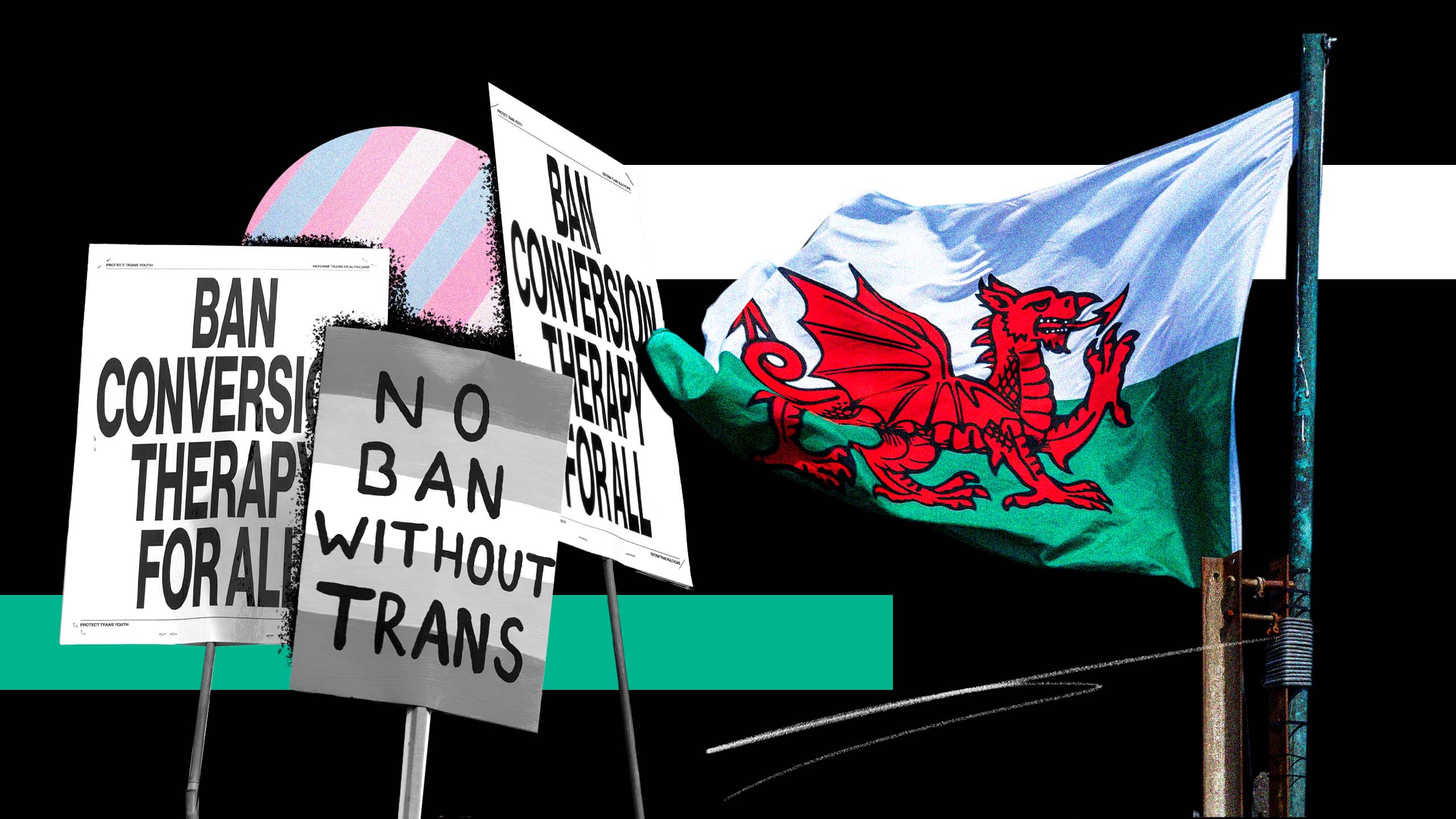Wales has taken steps to fully ban anti-LGBTQ+ conversion therapy, after the U.K. government refused to cover trans people in its proposed conversion therapy law.
Last week, the Welsh government announced that it had signed a memorandum of understanding with NHS Wales, the Welsh arm of the U.K.’s publicly funded National Health Service (NHS), and the Coalition Against Conversion Therapy. The decision ensures that conversion therapy cannot be offered or commissioned through healthcare settings, although it does not address the legality of private or religious conversion therapy.
“The Welsh Government and NHS Wales fully support the banning of LGBTQ+ conversion therapy,” said chief medical officer for Wales Dr. Frank Atherton and chief executive of NHS Wales Judith Paget in a joint statement. “We stand united in our desire to make this abhorrent practice illegal and believe this will offer an important opportunity to support those at risk of conversion therapy as well as victims and survivors.”
Wales’ planned ban is a direct response to the U.K. government’s failure to comprehensively outlaw conversion therapy.
Earlier this year, Prime Minister Boris Johnson promised that anti-gay conversion therapy would be banned in England and Wales, after former Conservative leader Theresa May vowed to ban the discredited practice in 2018. Johnson maintained, however, that treatments intended to change a patient’s gender identity have “complexities and sensitivities” and, thus, should remain legal.
This exclusion followed other political attacks against trans people, such as the government declining to update the outdated Gender Recognition Act, and the national equalities watchdog repeatedly meeting with transphobic hate groups. Thousands of people took to the streets to protest the U.K.’s about-face on its conversion therapy ban, and a petition calling for the U.K. government to expand the ban to include trans people has gathered over 140,000 signatures so far.
Immediately after Johnson’s announcement, the Welsh government sought legal advice on how to fully ban conversion therapy, according to the BBC.
The U.K. operates on a system known as devolution, where Wales, Scotland and Northern Ireland all have their own democratically elected parliaments, but with limited levels of power and ultimately still subordinate to the ruling British government. (England does not have its own separate legislature.)
Wales’ devolved parliament, the Senedd Cymru, has the ability to pass legislation specific to the country, although major areas like foreign affairs or crime remain under Westminster control. The centre-left Welsh Labour party have led minority or coalition Welsh governments since 1999.
Deputy Minister for Social Partnerships Hannah Blythyn, who is an out lesbian, pledged in an official statement that the Welsh government would also raise awareness of the “horrors and ineffectiveness” of conversion therapy, research how to best support conversion therapy survivors and create a working group including LGBTQ+ people to help develop the ban.
Blythyn added that banning conversion therapy is part of making Wales “the friendliest LGBTQ+ nation in Europe, where no one is left out or left behind.”
This isn’t the first time the Welsh government has indicated its intent to ban conversion therapy. Welsh Labour committed to “use all available powers to ban all aspects of LGBTQ+ conversion therapy that are in our powers and seek the devolution of any necessary additional powers” in its 2021 programme for government.
So-called conversion therapy is a umbrella term for treatments that seek to change an individual’s gender identity or sexual orientation. The range of practices cover everything from talk therapy to shock treatments and have been condemned by organizations around the world, including the World Health Organization (WHO) and human rights experts from the United Nations (UN).
Wales is not the only nation aiming to outright ban conversion therapy. Scotland’s centre-left coalition government has already promised to outlaw conversion therapy by the end of 2023. Most recently, the Scottish government formed an expert advisory group to help move legislation forward.
Scotland may have an easier time banning conversion therapy, as Scottish law has long been distinct from England and Wales. Scottish Parliament, for instance, is permitted to legislate on justice and policing matters, while the Senedd in Wales is not allowed to do so. Therefore, the U.K. government could deny Wales the additional powers needed to officially legislate a conversion therapy ban.
According to a YouGov poll released on May 3, 61 percent of Welsh respondents support banning anti-gay conversion therapy and 57 percent support banning anti-trans conversion therapy. Those numbers are similar—but slightly lower—than both Scotland (where 65 percent support a sexual orientation conversion ban and 61 percent support a gender identity conversion ban) and England (with 65 percent support and 62 percent support, respectively).


 Why you can trust Xtra
Why you can trust Xtra


